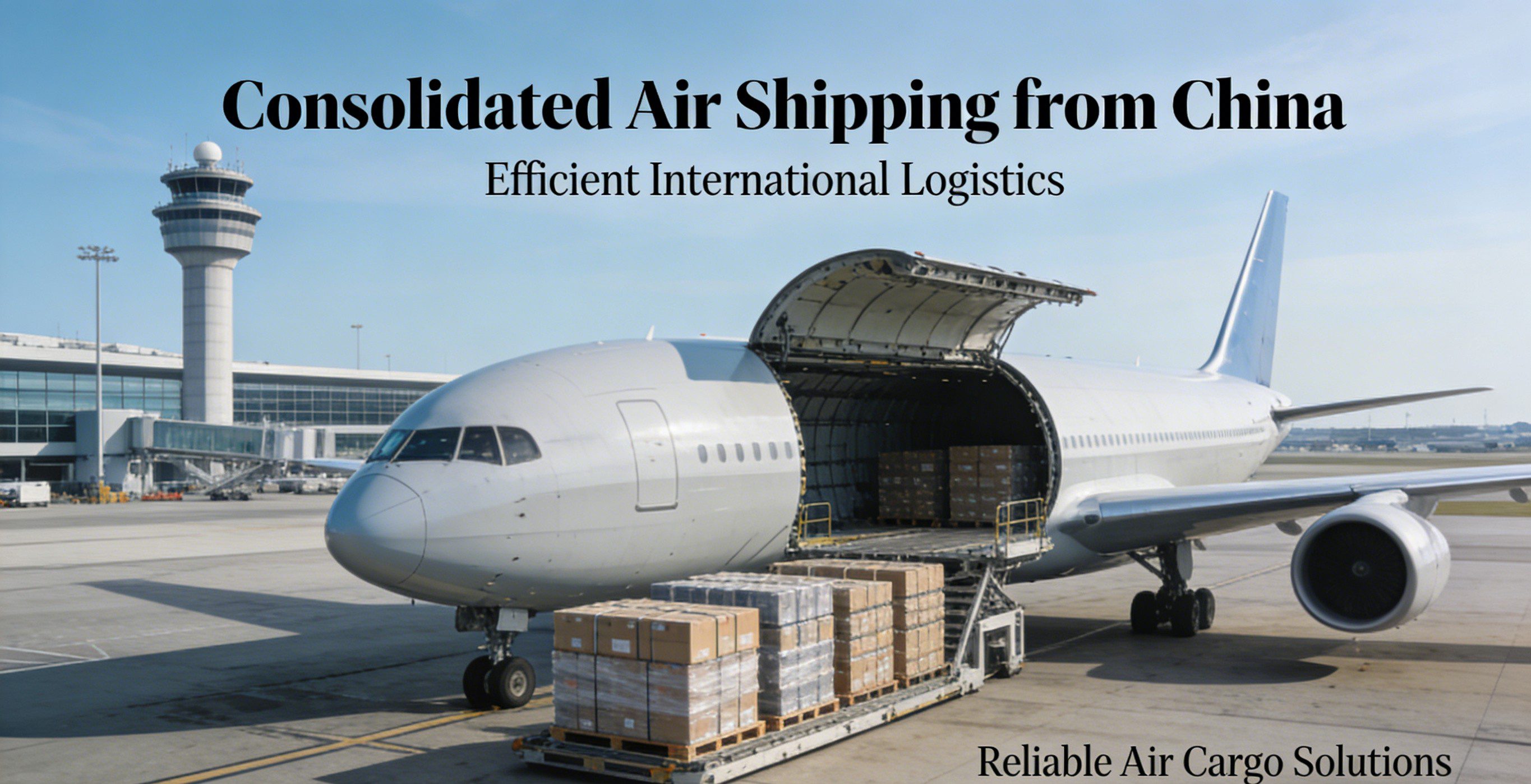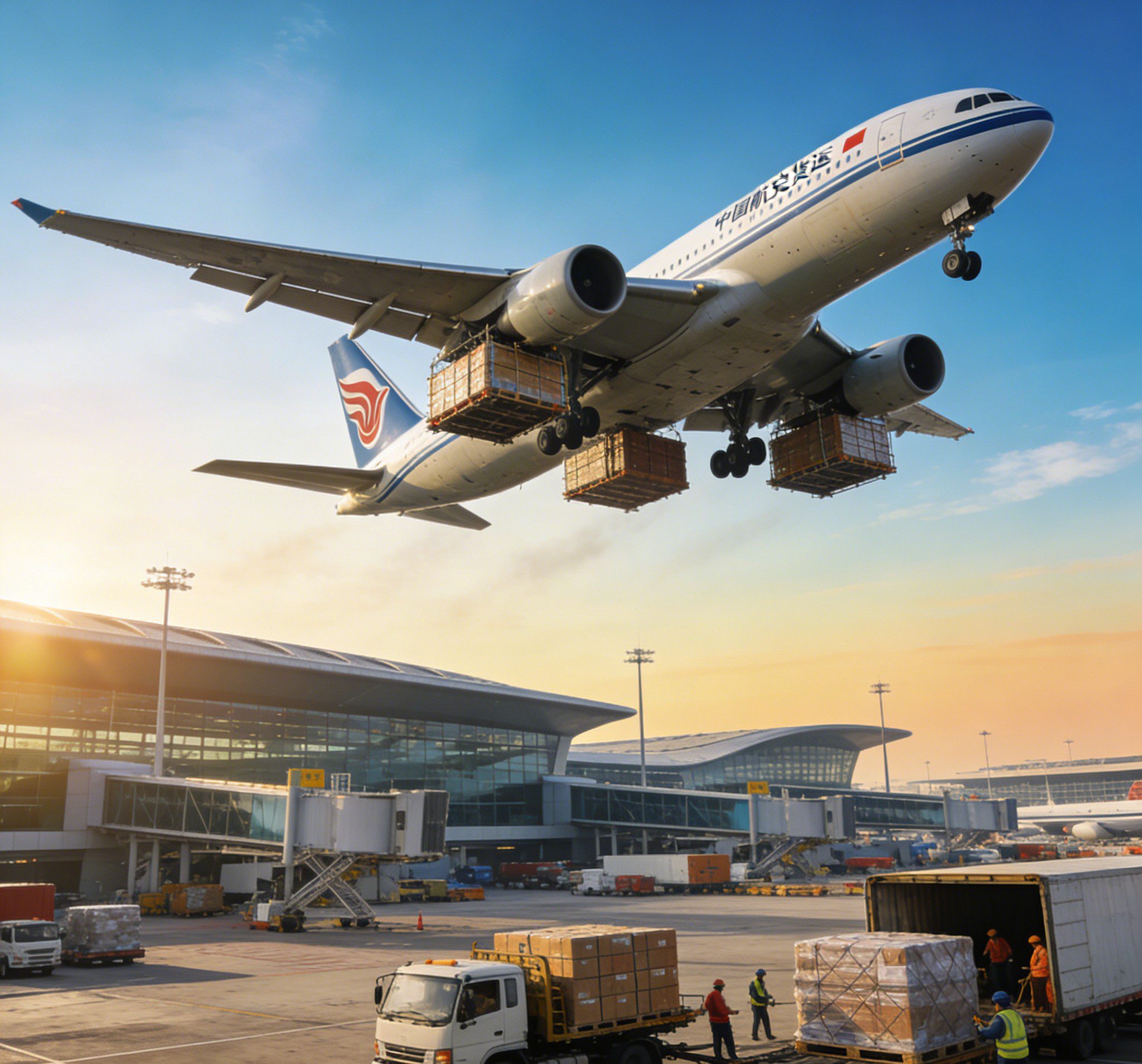BLOG
What is LTL Freight Shipping?
- wanmeili
- 2025-04-28
Introduction
LTL Freight Shipping (Less Than Truckload) is one of several transport methods for businesses to address specific logistics requirements.When moving goods, other common options include Full Truckload (FTL) shipping—where an entire truck is reserved for a single shipment—and ocean freight, which handles large-scale international deliveries. What makes LTL Freight Shipping distinct is its role as a cost-efficient choice: it lets companies ship smaller loads without incurring the higher costs of booking an entire truck.
What is LTL Freight Shipping?
LTL freight shipping refers to the transportation of relatively small freight shipments that do not occupy an entire truck’s capacity.With LTL shipping, carriers combine customer shipments to save businesses money.This methodology works especially well for small to medium-sized enterprises that want to manage their logistics efficiently. By utilizing LTL freight services, companies can help to optimize schedules and cut costs.Understanding the nuances of LTL freight shipping is essential for any business looking to streamline its logistics operations. In this weblog, we will delve deeper into the mechanics of LTL shipping, its benefits, and considerations to keep in mind when selecting the right freight services for your needs.
Understanding LTL Freight Shipping
Less Than Truckload (LTL) is a freight transportation service that companies design for shipments that don’t need the full capacity of a truck. Typically, LTL freight shipments range from 150 to 15,000 pounds, and they often consist of multiple smaller shipments from various customers.LTL carriers consolidate these smaller loads into one truck to maximize shipping efficiency, reduce costs, and provide timely deliveries. This method benefits businesses particularly well if they need to transport goods regularly without using an entire truck.
Comparison Between LTL and Full Truckload (FTL) Shipping
While both LTL and Full Truckload (FTL) shipping serve essential roles in logistics, they cater to different needs and offer distinct advantages:
Capacity Utilization:
LTL Shipping: Combines multiple shipments from different customers into one truck, making it cost-effective for smaller loads.
FTL Shipping: Requires shippers to dedicate the entire truck to a single shipment—this setup is ideal for larger loads or time-sensitive deliveries.
Cost Structure:
LTL Shipping: More affordable for smaller shipments since you only pay for the space your cargo occupies. However, it may involve additional fees for services such as liftgate, inside delivery, or residential pickups.
FTL Shipping: Generally has a higher cost due to the exclusivity of using the entire truck but can be more economical per unit for larger, bulk shipments.
Transit Times:
LTL Shipping: Tends to have longer transit times due to multiple stops for picking up and delivering various shipments.
FTL Shipping: Often provides faster transit times as the truck goes directly from the origin to the destination without additional stops.
Ideal Usage:
LTL Shipping: Best for businesses with smaller loads that need flexibility and cost savings.
FTL Shipping: Suitable for larger shipments or companies that require dedicated transportation for urgent deliveries.
Ideal Scenarios for Choosing LTL Shipping
Choosing LTL freight shipping is particularly advantageous in several scenarios:
Small to Moderate Volume: Businesses that regularly send shipments that do not fill an entire truck can benefit from LTL services, ensuring they only pay for the space they utilize.
Cost-Conscious Shipping: Companies looking to reduce shipping costs without compromising delivery quality will find LTL shipping to be an economical choice.
Frequent, Regular Shipments: For businesses that need to ship products regularly but in varying quantities, LTL shipping provides the necessary flexibility to adapt to changing demands.
Diverse Product Types: LTL is often ideal for shippers with mixed freight consisting of different goods, which can be consolidated into a single shipment.
Geographic Coverage: For businesses located in areas where full truckloads are not practical or feasible, LTL shipping can offer comprehensive reach and logistical support.
Benefits of LTL (Less Than Truckload) Shipping
Cost-Effectiveness: LTL shipping allows businesses to share truck space with other shipments, reducing shipping costs compared to paying for a full truckload. Companies only pay for the space their cargo occupies.
Flexibility: LTL shipping accommodations smaller, variable-sized shipments, making it easier for businesses to adapt to fluctuating order volumes without needing to arrange an entire truck.
Access to Multiple Destinations: LTL carriers typically consolidate shipments from multiple customers, enabling deliveries to various locations, which is beneficial for businesses with diverse customer bases.
Less Inventory Investment: With the ability to ship smaller quantities more frequently, businesses can reduce their inventory costs and better manage cash flow, minimizing the need to stock large quantities of goods.
Environmental Benefits: By utilizing shared truck space, LTL shipping contributes to lowered carbon emissions and improved environmental sustainability through optimized transportation logistics.
Enhanced Tracking and Visibility: Most LTL carriers provide advanced tracking systems, allowing businesses to monitor their shipments in real-time, enhancing transparency and facilitating better customer service.
Challenges and Considerations
Longer Transit Times: LTL shipments often involve multiple stops as freight is consolidated and distributed, leading to longer delivery times compared to full truckload shipments.
Potential for Higher Risk of Damage: Due to the frequent handling and transfers between different carriers and terminals, LTL shipments may have a higher risk of damage or loss compared to dedicated truckload shipments.
Complex Pricing Structures: LTL shipping costs can be complicated, with factors such as weight, dimensions, distance, and accessorial charges impacting pricing. This complexity can make it difficult for businesses to predict shipping costs accurately.
Limited Space Availability: During peak periods, such as holidays, finding available space on trucks can be challenging, leading to potential delays and requiring businesses to plan ahead.
Weight Restrictions and Classifications: LTL shipments are subject to weight limits and freight class classifications, which can affect shipping costs and logistics, making it essential for businesses to ensure accurate weight and classification of their goods.
Documentation Requirements: LTL shipments often require detailed paperwork for tracking and billing, which can be cumbersome for businesses not prepared to manage extensive documentation or regulatory compliance.
Getting Started with LTL Shipping
Understand Your Shipping Needs: Assess your product dimensions, weight, and shipping frequency to determine if LTL shipping is the right option for your business.
Choose a Reliable Carrier: Research and select LTL carriers that align with your needs in terms of service quality, geographic coverage, and pricing.
Get Accurate Quotes: Request quotes from multiple carriers, providing accurate information regarding weight, dimensions, and pickup/delivery locations to ensure reliable pricing.
Prepare Proper Documentation: Familiarize yourself with the required shipping documents, including the Bill of Lading and any necessary customs paperwork, to avoid delays.
Package Your Freight Securely: Use proper packaging and labeling to protect your items during transit and to ensure they are easily identifiable throughout the shipping process.
Track Your Shipments: Implement a tracking system to monitor your shipments in real-time, allowing you to stay informed about delivery status and address any potential issues promptly.
Cost Factors in LTL Shipping
In the realm of Less Than Truckload (LTL) shipping, multiple cost factors can affect your shipping expenses. A key consideration is the weight and dimensions. Carriers typically base their charges on freight class, which sorts items according to their density, handling needs, and liability. Consequently, items that are lighter but take up more space may lead to higher charges. Distance is another important aspect; since packages travel varying lengths, longer shipments generally come with increased costs. Furthermore, fuel surcharges are frequently added to account for changing fuel prices. Additional costs can arise from accessorial charges for extra services beyond standard shipping, including liftgate assistance, residential delivery, or inside pickup. Lastly, the rates negotiated with carriers and any existing contracts can have a significant impact on pricing; knowledgeable shippers often pursue volume discounts or long-term agreements to minimize shipping costs.
Conclusion
In conclusion, Less Than Truckload (LTL) freight shipping is an efficient and cost-effective solution for businesses looking to transport smaller shipments that don’t require a full truckload. Understanding the nuances of LTL shipping, from its cost structure to the various service options available, can empower companies to make informed decisions that align with their shipping needs. As e-commerce and global trade continue to grow, leveraging LTL shipping can provide a competitive edge by ensuring timely delivery and flexibility. Whether you’re a small business owner or a logistics manager, grasping the essentials of LTL freight will enhance your operational efficiency and help you meet your customers’ demands strategically. By embracing this shipping method, you can streamline your supply chain, save on costs, and ultimately, contribute to the overall success of your business.
Common LTL shipping questions
What is the meaning of LTL?
LTL stands for “Less Than Truckload,” referring to a shipping method for transporting smaller freight shipments that do not require a full truck’s capacity.
How does LTL (Less Than Truckload) work?
In LTL shipping, carriers consolidate multiple shipments from various customers into one truckload. They assign each shipment a portion of the truck based on size and weight, then coordinate pickup and delivery to ensure efficiency.
What’s the difference between LTL and FTL?
The primary difference is that LTL shipping is used for smaller shipments that do not fill an entire truck, while FTL (Full Truckload) is meant for larger shipments that occupy the full space of a truck, usually resulting in a more direct route and faster delivery.
What are LTL (less than truckload) freight carriers?
LTL freight carriers are transportation companies that specialize in shipping goods that do not require a full truckload. They manage the logistics of consolidating multiple shipments, providing cost-effective solutions for businesses requiring this service.
Related Posts



